BKT is satisfying the customer base to enhance its market acceptance. Prateek Pardeshi looks at the strides forward.
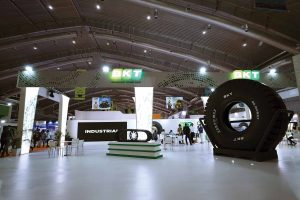 Balkrishna Industries Ltd. (BKT) is synonymous with Off-Road Tyres (OTR). With its wide domestic and international network, the company is hard to miss. Its products are even harder! With synergies of Group companies, BKT Exim Ltd, BKT Tyres Ltd., and Thristha Synthetics Ltd. in India and BKT Exim US, Inc., BKT USA Inc, BKT Tires (Canada) Inc, and BKT Europe S.R.L as its global subsidiaries, the company is making forward strides to enhance its market acceptance among the customer base. BKT recently launched the ‘Made in India’ OTR range for construction and earth moving applications showcased most recently at Excon 2k21. The attention was drawn to the E4 Earthmax SR468 TL and L5 Earthmax SR53 TL. According to Rajiv Poddar, Joint Managing Director, Balkrishna Industries Ltd., “Our R&D teams have produced these technologies to meet the demands of the sector and build even more robust tyres. This will help us better our offerings with customised products that are built around their needs and requirements.”
Balkrishna Industries Ltd. (BKT) is synonymous with Off-Road Tyres (OTR). With its wide domestic and international network, the company is hard to miss. Its products are even harder! With synergies of Group companies, BKT Exim Ltd, BKT Tyres Ltd., and Thristha Synthetics Ltd. in India and BKT Exim US, Inc., BKT USA Inc, BKT Tires (Canada) Inc, and BKT Europe S.R.L as its global subsidiaries, the company is making forward strides to enhance its market acceptance among the customer base. BKT recently launched the ‘Made in India’ OTR range for construction and earth moving applications showcased most recently at Excon 2k21. The attention was drawn to the E4 Earthmax SR468 TL and L5 Earthmax SR53 TL. According to Rajiv Poddar, Joint Managing Director, Balkrishna Industries Ltd., “Our R&D teams have produced these technologies to meet the demands of the sector and build even more robust tyres. This will help us better our offerings with customised products that are built around their needs and requirements.”
The E4 Earthmax SR468 TL, one of the largest tyres in the range is an all-steel radial specially designed for rigid haul trucks. The company is confident that the unique tread design with special tread compounds makes it apt for hard, rocky and tough mining conditions. Its tread lug blocks with circumferential grooves and intertwined blocks are designed to ensure effective heat dissipation, for instance. Also, the sturdy square shoulder assists in ejecting loose stones to protect the tyre from wear. BKT hails it as a development for customers looking to carry heavy loads where the company assures longer service life and a high degree of resistance to rock forced cuts and punctures.
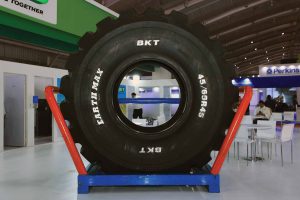 In comparison, the 45/65R45 L5 Earthmax SR53 TL, an all-steel radial from the Earthmax umbrella is specially made for large loaders known to operate in difficult rocky conditions. A cut-resistant compound makes up the deep L-5 tread classification. Additionally, the tyre is made to provide exceptional abrasion resistance while being loaded. Further BKT also introduced newly introduced rubber tracks designed for compact track loaders. Amongst few tyre manufacturers to produce rubber tracks for agricultural and industrial machines, the company is breaking into new territories, tapping new customers with initiatives like producing rubber tracks for harvesting machines used in the paddy fields.
In comparison, the 45/65R45 L5 Earthmax SR53 TL, an all-steel radial from the Earthmax umbrella is specially made for large loaders known to operate in difficult rocky conditions. A cut-resistant compound makes up the deep L-5 tread classification. Additionally, the tyre is made to provide exceptional abrasion resistance while being loaded. Further BKT also introduced newly introduced rubber tracks designed for compact track loaders. Amongst few tyre manufacturers to produce rubber tracks for agricultural and industrial machines, the company is breaking into new territories, tapping new customers with initiatives like producing rubber tracks for harvesting machines used in the paddy fields.
Capacity building
With such new launches, the company has set out on a mission to double the global market share from ~ 5.5 per cent to 10 per cent. BKT shall continue to expand manufacturing capacities in line. BKT’s performance in 2021-22 is testimony to the long-term strategy of capitalising on its increasing scale while at the same time maintaining the business agility, paying off. With the ongoing expansion of its product range, BKT takes pride in maintaining a 3200 Stock Keeping Unit (SKUs). By no means an easy feat! On exports, which are known to account for 83 per cent of sales, the company has attracted 54 per cent of the export business from Europe; 17 per cent in the US and 12 per cent in the rest of the global markets. Domestic sales are estimated to account for 17 per cent in comparison. To support its growth aspirations, the company put up the Waluj 2 greenfield facility into service; a brownfield facility at Bhuj. In line with the demand, the company has kept operations agile in case there is a need to ramp up the scale by the second half of 2022–2023. The goal is to breach the total capacity profile of 3.60 lakh Million Tonnes Per Annum (MTPA) when operating at full-scale capacities. BKT expects the initiatives to pay off and expects sales to grow by 10,000 MT, from ~ 3.20 lakh MT to 3.30 MT in FY23.
To promote long-term sustainability, BKT has launched a number of initiatives including greater energy efficiency through two MegaWatts and five MegaWatts solar-powered facilities. The focus on recycling and waste management covers a disciplined waste management system for safe storage, disposal, and waste re-purposing. The future targets to achieve carbon neutrality include Zero Liquid Discharge (ZLD) at all plants by 2025 and a reduction in Greenhouse Gas (GHG) emissions of 25 per cent (scope-1 and scope-2) by that same year. Over the next decade, the aim is to attain a 20 per cent waste reduction from current levels. By 2025, all manufacturing facilities must switch to renewable energy.


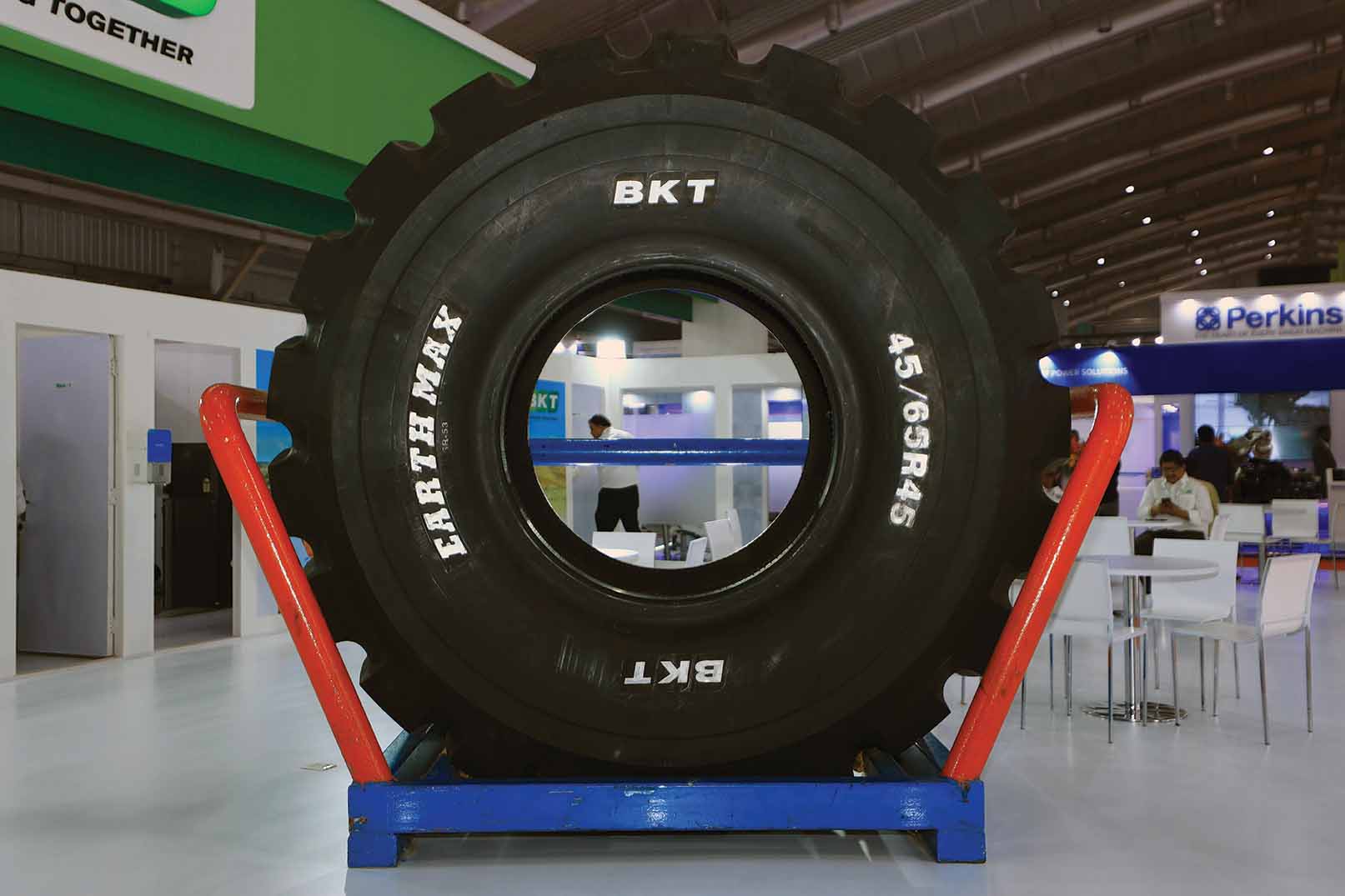


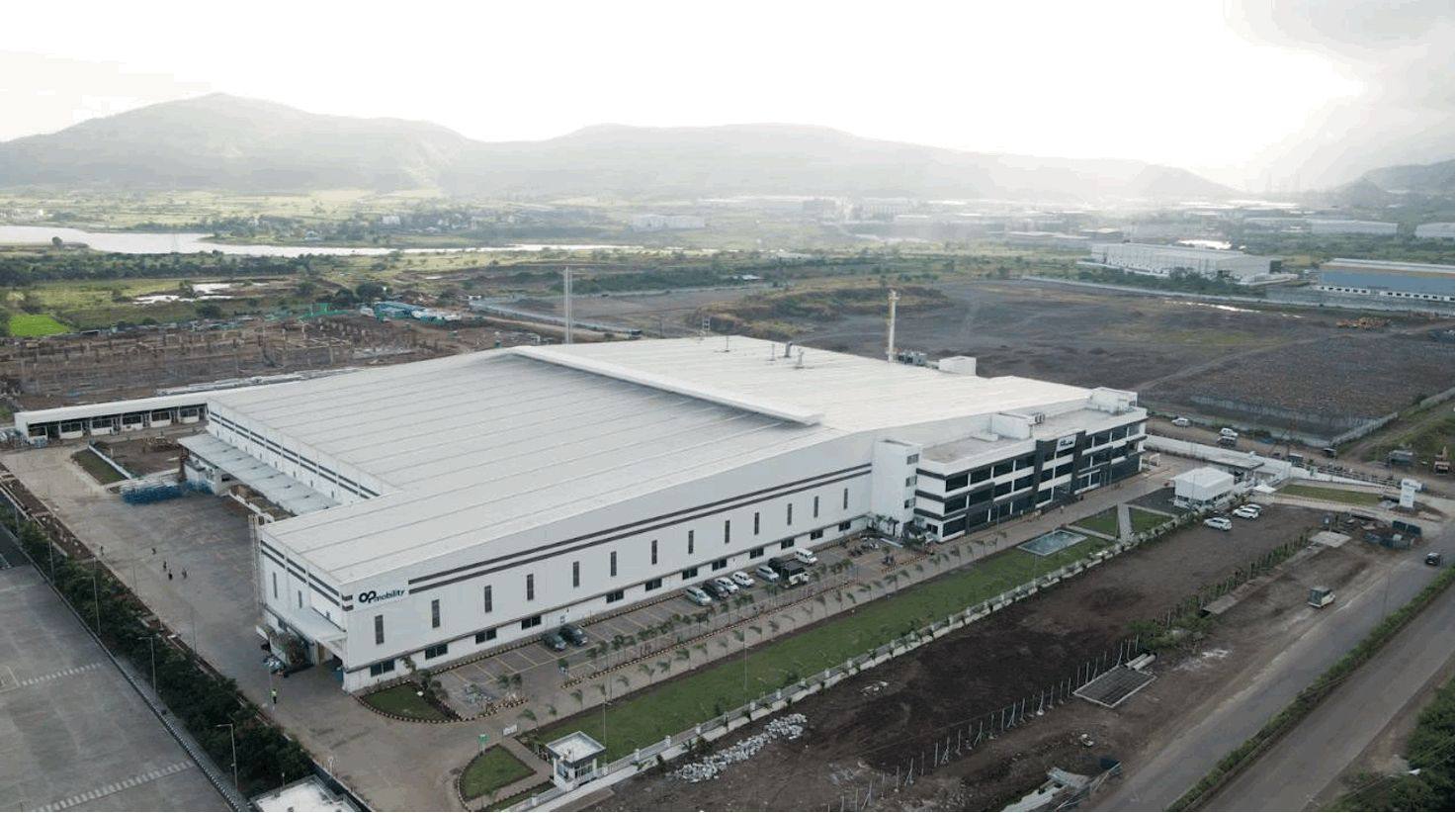
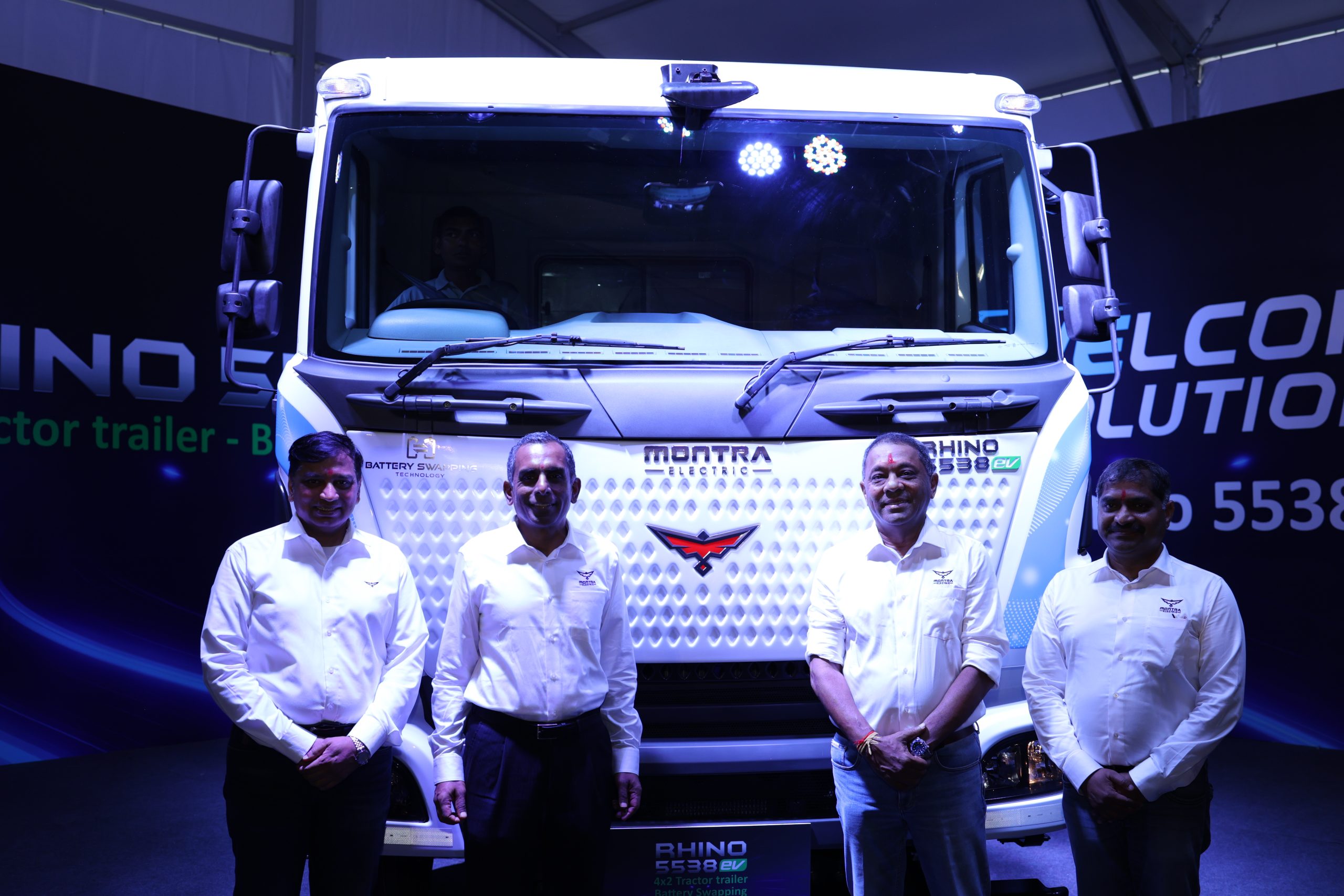
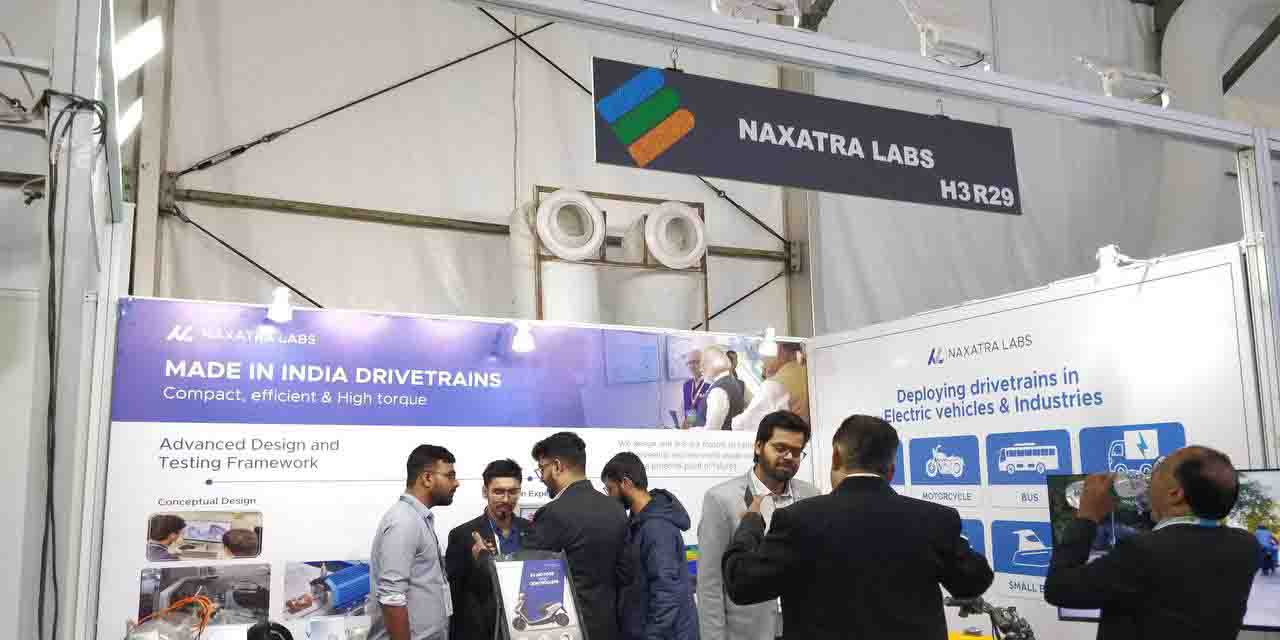
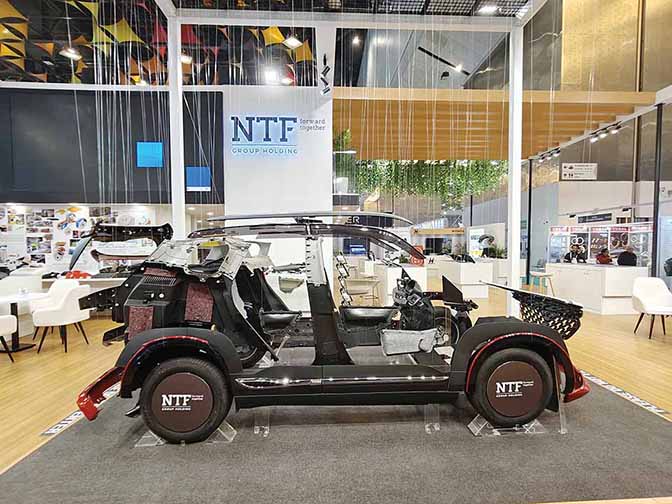
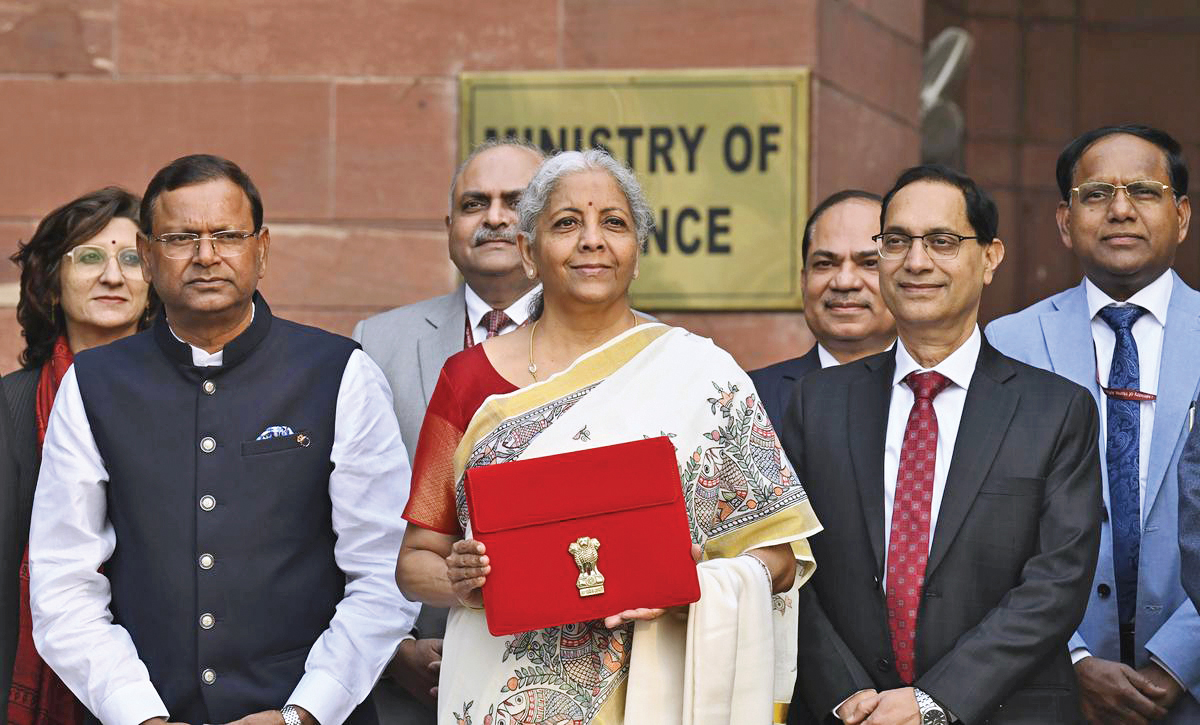




Leave a Reply